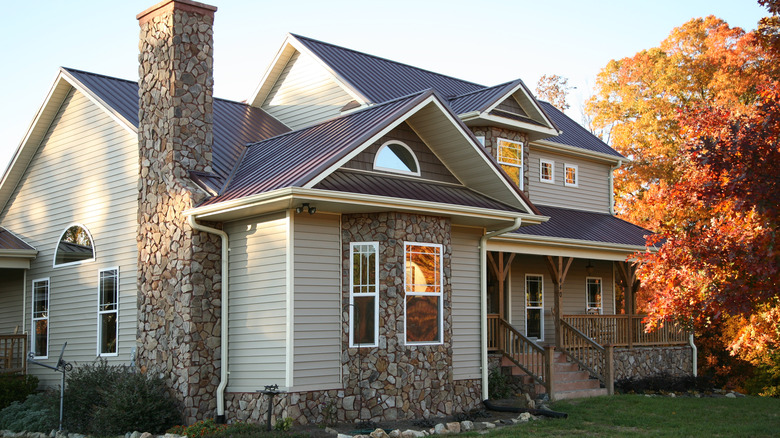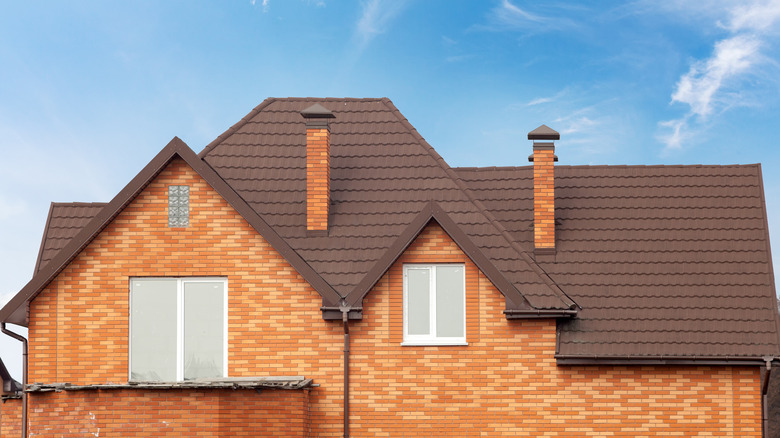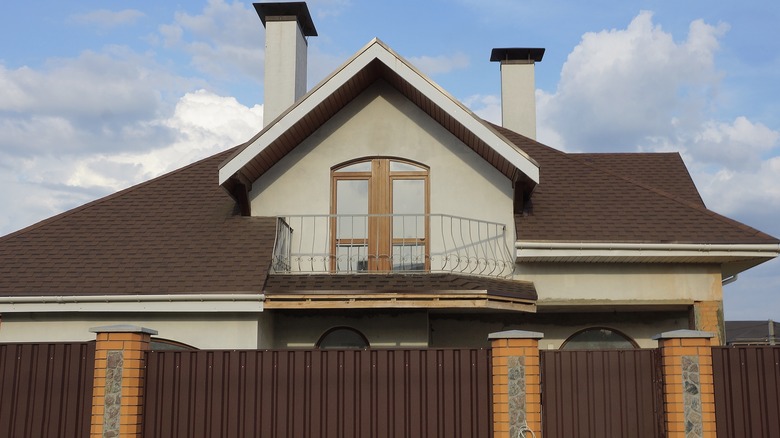What You Should Know Before Choosing A Rust-Resistant Metal Roof For Your Home
Replacing a roof is surely one of the largest investments a homeowner will make in their property. Picking the best type for your home, therefore, can feel like a rather intimidating decision. You may have heard about the longevity and other benefits of switching to a metal roof and found yourself wondering whether or not there are any downsides to this material (other than its higher price point). This is where experts like Andre Afsharian of Roof Repair Specialist come in.
We asked this roofing expert for his exclusive take on everything homeowners should know before committing to purchasing a rust-resistant metal roof for their home. Let his opinions — including an extensive list of both the pros and cons of this material — guide you on your journey. Even if you aren't currently in need of a new roof, you can never be too prepared for the moment when you inevitably receive the news that you have to invest in one.
Benefits of a rust-resistant metal roof
There's a reason why the subject of a metal roof will inevitably come up as soon as you decide to build a new house (or learn that your traditional roof needs to be replaced). Once you begin to consider different types of roofing materials, you'll realize the benefits are considerable. According to Andre Afsharian, stone-coated steel is the gold standard when it comes to rust-resistant metal roofing. The material offers several benefits in comparison to traditional asphalt shingles, in addition to its high level of resistance to rust compared to standard steel. "This material combines the strength of steel with the protective benefits of a stone coating," he explained in his exclusive talk with HouseDigest, "providing excellent durability against extreme weather conditions like hail, heavy rain, and high winds."
Afsharian went on to highlight the fire-resistance, aesthetic appeal, and longevity of stone-coated steel roofs. He noted that the material in question is non-combustible, offering "superior fire resistance compared to other roofing options." The metal is also available in a wide variety of styles and colors that can mimic more traditional materials and tend to last between 40 and 70 years. In comparison, a traditional shingle roof can be expected to last 15 to 30 years.
The potential cons
All roofing material has potential drawbacks, and rust-resistant stone-coated steel is no exception. When it comes to the downsides, Andre Afsharian exclusively cautioned readers about higher costs of both materials and installation, heavier weight, and more exaggerated noise levels. Heavier weight, Afsharian warned, might require additional structural support that can lead to even higher up-front costs. Of course, many of these costs are potentially offset by the longevity of the material, which requires fewer replacements over time.
If you're particularly sensitive to noises, keep in mind that a metal roof will create a louder experience during rain or hail. However, Afsharian did note that this can typically be mitigated by proper insulation. Be aware, however, that there is such a thing as too much insulation. "Stone-coated steel offers excellent rust resistance, durability, and aesthetic options, but homeowners should consider the higher cost and installation complexities when deciding if it is the right choice for their home," the roofing expert concluded.


